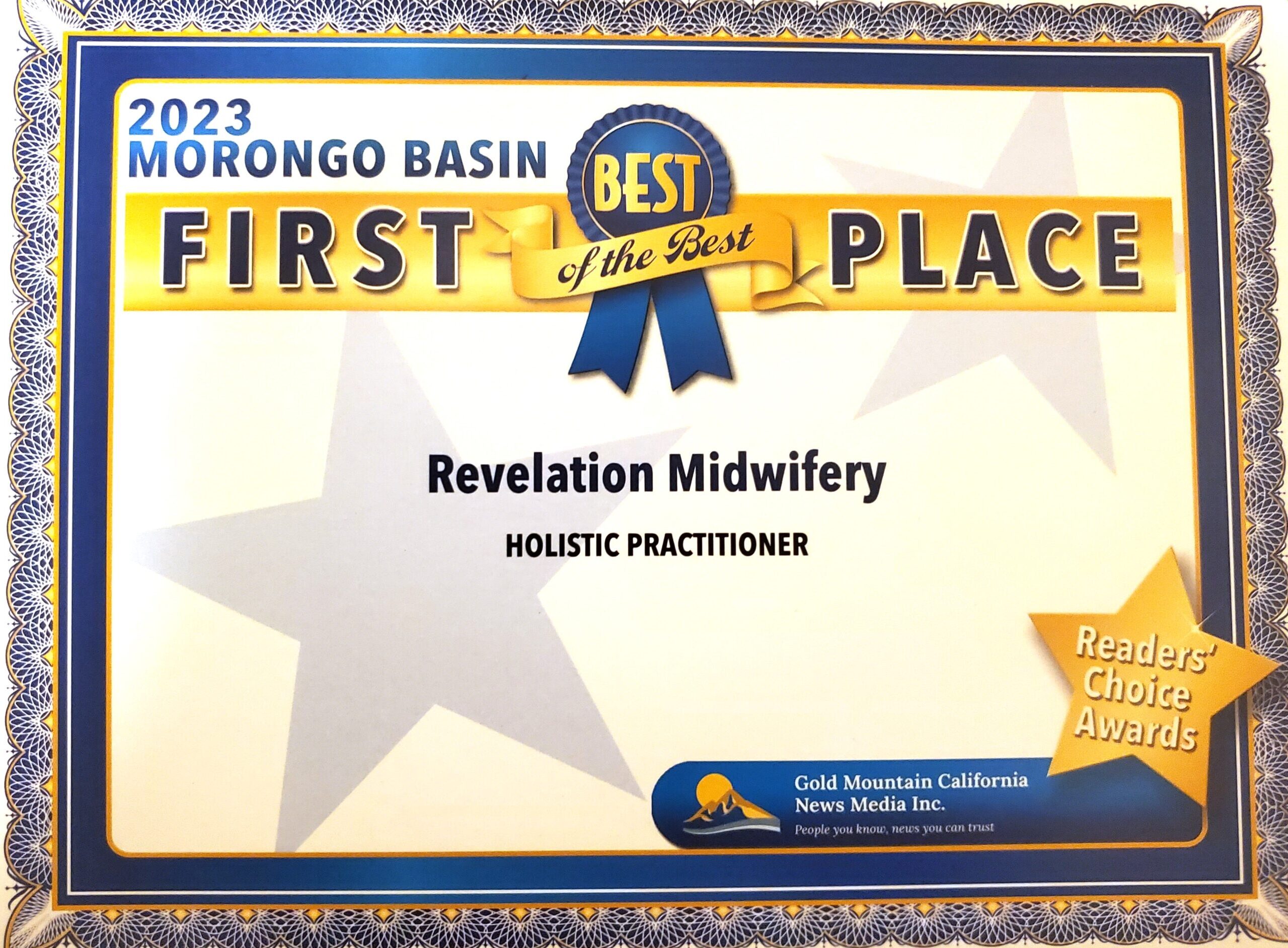Who is a good candidate for homebirth?
“As home birth deals with normal pregnancy and birth, we actually could serve the majority of the population. “If you are one of the over 75% of all women with a normal pregnancy the safest birth attendant for you is a midwife” – Marsden Wagner, MD.”
Recently, “normal” was defined in our law. As of January 1, 2014, the Licensed Midwife is authorized to attend cases of normal pregnancy and childbirth which is as defined below:
- There is an absence of any preexisting maternal disease or condition likely to affect the pregnancy.
- There is an absence of significant disease arising from the pregnancy.
- There is only one baby.
- The baby is head down at term.
- The pregnancy must be at least 37 weeks and/or no longer than 42 weeks in duration.
*The midwife must transfer care of a client to a physician if this condition of normalcy does not exist.
- Labor must start on its own or be induced in an outpatient setting. (home, office, birth center)
We can care for women with a single previous c-section under most circumstances. We can treat many common complaints in pregnancy and birth with herbs, homeopathy, comfort measures or referral when necessary for a medical consultation. Normal means low-risk in the medical world, this excludes situations such as: diabetes, high blood pressure, severe anemia unresolved from treatment, blood or clotting disorders, heart problems controlled by medication, and HIV+ among others. Contact us to talk about your specific circumstance.
But the mess?
Birth is usually not very messy. Plastic and disposable products in your birth kit help us to contain the mess. Your midwife team cleans up after the birth. When we leave, the only evidence that we were there should be 2 small trash bags, a load of laundry and your new baby!
Do you have a back-up physician?
CA law does not require me to have a back-up physician but I am able to refer for ultrasounds or if circumstances pose a higher risk for mom and baby, I can consult with an OB and I have had good interactions with certain local hospitals.
Do I need to have an ultrasound?
Ultrasound can be a useful tool but is not routinely necessary in a healthy pregnancy. Some reasons an ultrasound may be recommended include uncertain dates, vaginal bleeding, possibility of twins, abdominal pain, decreased fetal movement, or if you have previously had a cesarean. Many clients planning a homebirth do decide to have a 20-week fetal anatomy scan done. I can refer you to Desert Medical Imaging or I can offer other resources for ultrasound.
What if you have 2 clients in labor at the same time?
Sometimes two people will be in labor at the same time! They do not often birth at the same time but this situation can create quite a lot of tension for the families involved. This circumstance is not common. Midwives limit the number of clients they will take per month to minimize this risk. Should this situation arise when you are in labor I will decide who needs my personal attention most and call another attendant to cover the other family. This decision will be based partly on timing and partly on a woman’s childbearing history and risk factors. We will do everything possible to see that no one goes unattended.
Who can be at my birth?
Anyone you like! You can have a doula, your mother, your best friend, anyone who can provide good support for you during birth and who accepts your decision to give birth at home. Your children are also welcome, as long as you have a designated support person for young children. I encourage family-centered birthing and have books and videos to help you prepare your children for the birth. There will be at least two trained attendants at your birth – myself and an assistant. We can be as involved or as hands-off as you’d like (pending all being normal and healthy of course). We can be by your side, or quietly sit in another room, ready and available. This is your birth experience! You decide who will be present, and how each person will support you.
How do you monitor the baby during birth?
We typically use a handheld Doppler to periodically listen to your baby’s heart during labor. Doppler is a form of ultrasound that allows us to hear the baby’s heart beat through your abdomen. It can be used under water and with you in almost any position. If you prefer, we can use a fetoscope (a type of stethoscope) instead, but you may have to move into a position that allows us to hear the baby’s heart beat.
What do you bring to the birth?
There are many supplies brought to your house for the birth including: blood pressure cuff and stethoscope, oxygen, anti-hemorrhagic medications such as Pitocin, neonatal resuscitation equipment, special items for special circumstances such as a catheter, IV fluids, herbs and homeopathy, newborn scale, among many other items. Most of all, we bring compassion and patience in the process.
What supplies do I need?
You will be provided a list of supplies including a specialized birth kit to be purchased by you (about $80.00) that has many disposable items. Other items are often simply gathered from around your house such as an old set of sheets, towels, thermometers, food and drinks you like, etc.
Can I labor and birth in water?
Absolutely! I recommend having water available during your labor. Laboring in water is a gentle option that has provided significant relief and relaxation time and again. It can help you find your rhythm in labor and make progress in labor. Water actually lowers blood pressure and it naturally provides perineal support and reduces tearing as well. At birth, the baby has a dive reflex that prevents them from taking in water as they come from the amniotic water to the water of the birth tub. Babies are brought to the surface and into mom’s arms immediately and kept warm with their head out of water but body in water. Please visit Waterbirth International’s website for more information on the benefits of Waterbirth, waterbirth.org Revelation Midwifery has water birth tubs that may be rented/loaned depending on the type of tub you want.
Can my partner/husband catch the baby? Can I catch the baby?
Yes, parents are encouraged to receive their own baby! A midwife may provide perineal support or help check for a loop of cord or a hand by the baby’s face, and if you wish, will help guide the baby into your hands.
What if there is an emergency?
I cannot promise you that your pregnancy and birth will be uncomplicated. Challenges are regularly encountered during childbearing. Most complications present signs that can be caught early. This is why prenatal care is so important. I can promise you my support as you face any challenge that may come your way. Some people develop difficulties during their pregnancy or labor which could increase the risks associated with giving birth at home. Many emergencies can be handled at home but we make a plan prenatally which is the closest hospital and your hospital of choice. We can choose a non-emergent transfer using your personal vehicle or calling Emergency Services to get you to a hospital quicker, if needed. Your midwife would call ahead to the hospital and “give report” and then meet you there. She will stay with you until your baby is born and assist with breastfeeding. Your midwife can resume your postpartum and newborn care once you are back home.
Do you take insurance?
Revelation Midwifery is often covered as an “out of network provider” for many PPO plans. Alisha at Earthside Billing will determine at the beginning of your care what your insurance is likely to pay. Depending on your coverage, the deductible and your individual circumstances, our billing company will bill your insurance company and hopefully be able to reimburse you in part or in full for the upfront costs. Insurance companies can also take many months after the birth of your baby to send reimbursement. For this reason, I ask that you pay Revelation Midwifery in full by 36 weeks and then you will receive reimbursement from your insurance company. Payment plans are available. Health Savings Accounts or Flex accounts can reimburse midwifery care as well. I am currently unable to bill any HMO, IEHP, MediCal or TriCare.
Now offering a financing option through United Credit
Thousands of patients have trusted United Credit to secure affordable payment plans for their procedures. United Credit can do the same for you.
Some of the benefits of choosing United Credit to finance your care:
-
Extensive Network of Prime and Subprime Lenders
-
Multiple Plans to Choose From
-
Decisions Within Seconds
-
No Prepayment Penalties with Flexible Terms
-
Fast and Easy Application Process with No Commitment
-
100% Confidential
-
Plans available for Credit Challenged Applicants
- Apply here: https://www.unitedcredit.com/


